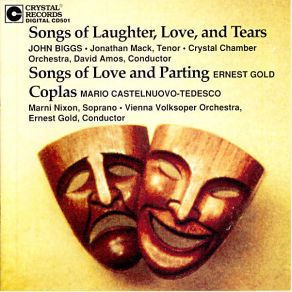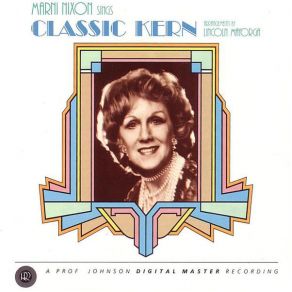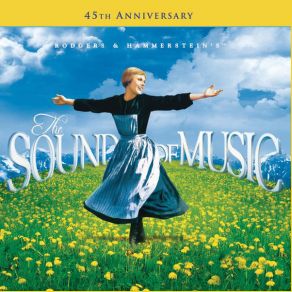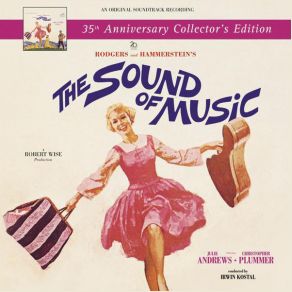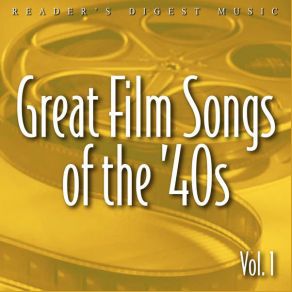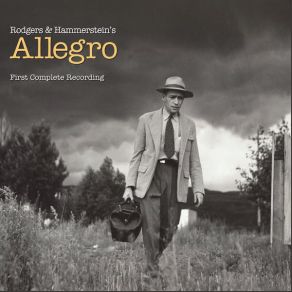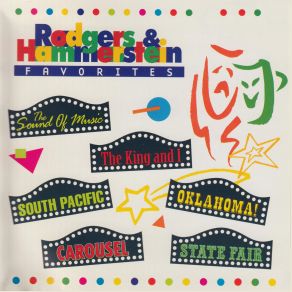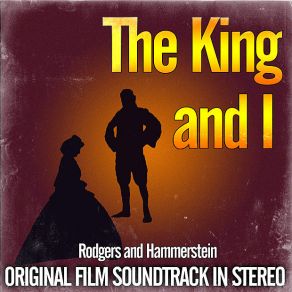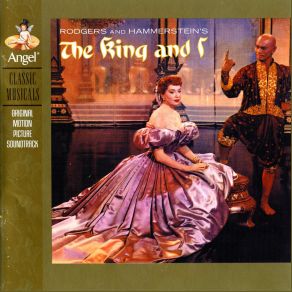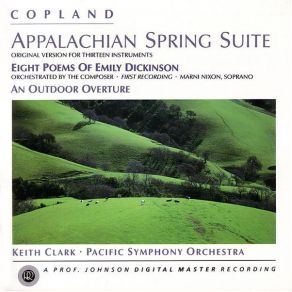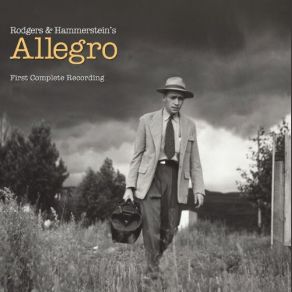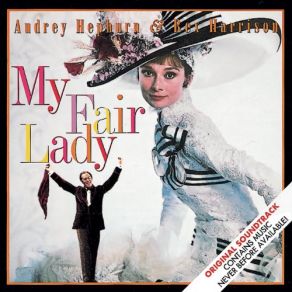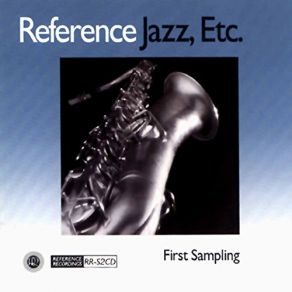Marni Nixon
Wikimp3 information about the music of Marni Nixon. On our website we have 10 albums and 33 collections of artist Marni Nixon. You can find useful information and download songs of this artist.
Biography
[Edit]Called "the queen of the dubbers" by musical theater historian Kurt Gänzl, soprano singer Marni Nixon enjoyed a lengthy career in film, opera, television, recordings, and the legitimate stage, even though her voice was much more familiar to the mass audience than her face or her name. Her reputation as a singer's singer rests on the series of movie musicals of the 1940s, '50s, and '60s in which she served as a "ghost singer," dubbing in her voice to replace that of such non-singing stars as Margaret O'Brien, Deborah Kerr, Natalie Wood, and Audrey Hepburn. In that capacity, the millions of moviegoers who saw the films and the millions of record buyers who listened to the soundtrack albums of such popular screen efforts as The King and I, West Side Story, and My Fair Lady became familiar with her voice without having any idea who they were hearing. That wasn't only because she was not credited at the time, it was also because of her remarkable versatility, which allowed her, as Gänzl noted, to be equally convincing as "the very English" Anna Leonowens of The King and I, the "Puerto Rican teenager" Maria of West Side Story, and "the cockney Eliza" of My Fair Lady. In fact, her versatility extended much further than that, as demonstrated by Grammy Award nominations for her classical recordings and a successful stint as the hostess of a children's television series.
Nixon was born Margaret Nixon McEathron in Altadena, CA, on February 22, 1930. She was a child actress and a soloist with the Roger Wagner Chorale, and she had an extensive classical music education. She studied with a series of teachers: Carl Ebert at the University of Southern California in Los Angeles; Jan Popper at Stanford University; and Sarah Caldwell and Boris Goldovsky at the Berkshire Music Center at Tanglewood, MA. At the age of 18, she undertook her first assignment as a ghost singer for the movies, replacing the voice of child star Margaret O'Brien in the musical The Big City, which opened in May 1948. (She also had an off-screen vocal part in Joan of Arc, released that November.) A year later, she again sang for O'Brien in the drama The Secret Garden. The following year, she married screen composer Ernest Gold, a marriage that lasted until 1969 and produced three children, among them the recording artist Andrew Gold.
Although Marilyn Monroe did most of her own singing in the movie version of the Broadway musical Gentlemen Prefer Blondes, released in July 1953, Nixon took over the high notes, demonstrating an ability to blend carefully with the actress she was ghosting to create the effect of a single vocal performance. In 1954, she appeared as a guest on the short-lived television series Opera Cameos, which ran on the Dumont network. According to studio logs, she was called in to sing "If I Loved You" for Shirley Jones in the movie version of Carousel, released in February 1956, although she later professed to have no memory of having done so, and Jones, unlike many of the actresses for whom she worked as a vocal stand-in, had an excellent singing voice. There is, however, no doubt about her next soundtrack appearance, in another Rodgers & Hammerstein adaptation, the June 1956 release The King and I. Here she took over the singing part for Deborah Kerr on such standards as "I Whistle a Happy Tune," "Hello, Young Lovers," and "Shall We Dance?" The soundtrack album, released by Capitol Records, hit number one, remained in the charts for more than five years, and was certified as a gold record, reportedly selling over a million copies. "Nixon was a splendidly assured and tuneful voice-of-Anna," wrote Gänzl in The Blackwell Guide to Musical Theatre on Record, "giving her songs just the kind of warmth they needed with oversinging." The romantic tearjerker An Affair to Remember, which opened in July 1957, was not a musical per se, but Deborah Kerr was seen singing in it, and Nixon again dubbed in her voice, with a soundtrack album released by Columbia Records. Two months earlier, she had stepped in for Sophia Loren in her American debut, Boy on a Dolphin, with a soundtrack album released by Decca Records.
Nixon made her first actual appearance onscreen as an adult in March 1960 in the chorus of the film version of Cole Porter's Can-Can. In October 1961, she had her most prominent vocal stand-in part since The King and I when she sang the part of Maria in place of Natalie Wood in the movie adaptation of Leonard Bernstein and Stephen Sondheim's West Side Story, a massive hit, in which she sang such songs as "Tonight," "Somewhere," "I Have a Love," and "I Feel Pretty." According to Gänzl, she did "her usual amazing job," giving "a performance of lightness and sweetness which fits the role delightfully." The soundtrack album, released by Columbia Records, spent more than a year at number one, selling three million copies. A year later, in November 1962, she again spelled for Natalie Wood in the screen version of Jule Styne and Sondheim's Gypsy. The soundtrack LP, released by Warner Bros. Records, was a Top Ten hit. The same month, she began an association with Walt Disney, appearing on the album Great Operatic Composers and Their Stories, released on Disneyland Records.
In 1964, Nixon worked on several projects that unintentionally shadowed the work of stage star and emerging film star Julie Andrews. Although Andrews had starred in the massively successful Broadway musical My Fair Lady starting in 1956, she was deemed not a big enough star to carry the film version when it came time for production in 1964, and Audrey Hepburn was cast in the role of Eliza Doolittle instead. Hepburn, however, couldn't sing, and so Nixon dubbed her. Before the film was released in October 1964, Nixon made her Broadway debut in a limited-run revival of My Fair Lady mounted by the New York City Center Light Opera Company that ran from May 20 to June 28. The same month, Disneyland Records released Ten Songs from Mary Poppins, an LP on which Nixon sang songs such as "A Spoonful of Sugar" and "Super-cali-fragil-istic-expi-ali-docious" with songwriter Richard M. Sherman and others, in advance of the upcoming film version of Mary Poppins, which, when it was released in September 1964, starred Andrews (who, of course, did her own singing onscreen). Also in May 1964, Nixon appeared on a Disneyland Records LP called The Story of Hansel and Gretel. She followed in January 1965 with Famous Arias from Aida (And Other Operas).
Nixon's Disney recordings didn't garner a lot of attention, but My Fair Lady, in which she sang such songs as "Wouldn't It Be Loverly," "Just You Wait," and "I Could Have Danced All Night," did. The soundtrack album, released by Columbia Records, reached number four, stayed in the charts more than two years, and went gold. Interestingly, Nixon's next movie effort found her actually sharing the screen with Julie Andrews. In March 1965, Andrews starred in the film version of Rodgers & Hammerstein's The Sound of Music, which went on to become the highest grossing movie released up to that time. In a rare screen appearance, Nixon, cast in the small part of Sister Sophia, joined in the singing of the song "Maria."
The Sound of Music marked the end of Nixon's film career for the moment, but she continued to work in the popular music realm in other areas. On February 26, 1967, she sang and lent her speaking voice to an animated musical version of Jack and the Beanstalk on NBC-TV, a version of the fairy tale produced, directed by, and also featuring Gene Kelly, with songs by James Van Heusen and Sammy Cahn. Hanna-Barbera Records released a soundtrack album. She also continued to work in the classical realm. In 1976, she earned her first Grammy Award nomination for Best Classical Performance, Vocal Soloist, for her album 9 Early Songs: The Cabaret Songs of Arnold Schoenberg, released by RCA. And she worked on-stage. On June 9, 1983, she appeared along with Margaret Whiting and Cissy Houston in the off-Broadway musical Taking My Turn, which ran 345 performances and produced a cast album released by Broadway Ltd. Records. In 1985, she recorded Marni Nixon Sings Gershwin for Reference Recordings, accompanied by pianist Lincoln Mayorga. Three years later, they followed with Marni Nixon Sings Classic Kern. In between, she was nominated for the 1987 Grammy Award for Best Classical Performance, Vocal Soloist, for her album Copland: 8 Poems of Emily Dickinson, also released by Reference Recordings. She appeared in several productions of the musical Opal and sang on the studio cast album recorded in 1996. She appeared in the 1997 film I Think I Do. In 1998, she again lent her voice to a screen character, in this case for the Disney animated feature Mulan. On January 11, 2000, she returned to Broadway in a stage adaptation of James Joyce's short story The Dead, which was billed as a musical. It ran 112 performances, through April 16, 2000. In 2002, she stepped in as a replacement cast member in a Broadway revival of Stephen Sondheim's Follies; the following year, she did the same thing for a Broadway revival of Maury Yeston's Nine. She remained active into the mid-2000s, despite having passed her 75th year, appearing, for example, in the summer of 2005 in a production of Follies produced by the Barrington Stage Company.
In addition to these credits, Nixon has also worked periodically in opera, including productions of Mozart's The Marriage of Figaro, Verdi's La Traviata and Rigoletto, and Offenbach's La Perichole, as well as such modern operas as Sir Peter Maxwell Davies' Miss Donnithrone's Maggo (which she recorded for the Musical Heritage Society) and Poulenc's La Voix Humaine. She has appeared as a soloist with orchestras around the U.S. and abroad and toured with her one-woman show, Marni Nixon: The Voice of Hollywood. She taught at the California Institute of the Arts between 1969 and 1971 and at the Music Academy of the West in Santa Barbara, CA, starting in 1980. And she starred in her own children's television series, Boomerang, while living in Seattle, WA.
Title: Songs of Laughter, Love, and Tears
Artist: Marni Nixon, Ernest Gold, Vienna Volksoper Orchestra, Jonathan Mack, David Amos, Crystal Chamber Orchestra
Genre:
Title: Marni Nixon Sings Classic Kern
Artist: Marni Nixon
Genre: Jazz, Pop, Theatre/Soundtrack, Classical
Title: Marni Nixon Sings Gershwin
Artist: Marni Nixon, Lincoln Mayorga
Genre: Jazz, Pop, Theatre/Soundtrack, Classical
Title: My Fair Lady (Original Soundtrack)
Artist: Marni Nixon, Rex Harrison
Genre: Jazz, Pop, Theatre/Soundtrack
Collections
Title: The Greatest Hits from the Musicals
Genre: Theatre/Soundtrack
Title: Songs and Story: Mulan
Genre: Kids
Title: Rare Christmas Music from the Attic
Genre: Traditional Pop Music
Title: Girls Sing the Christmas Classics
Genre: Jazz
Title: Forgotten Christmas Classics
Genre: Traditional Pop Music
Title: Classic Christmas Carols
Genre: Traditional Pop Music, Kids
Title: Allegro - First Complete Recording
Genre: Theatre/Soundtrack
Title: 50 Best American Classics
Genre: Pop
Title: Music from 6 Continents (2010 Series)
Genre:
Title: Reader's Digest Music: Broadway Goes Inspirational
Genre: Gospel
Title: Remembering the '40S
Genre: Pop
Title: Essential American Classics
Genre:
Title: Joyful Holiday Music!
Genre: Kids
Title: Christmas Blast from the Past
Genre: Traditional Pop Music
Title: Rodgers & Hammerstein Favorites
Genre: Theatre/Soundtrack
Title: Reference Jazz, Etc. - First Sampling
Genre: Jazz
Title: Pure... Musicals (Original Soundtrack) (CD1)
Genre: Pop, Theatre/Soundtrack
Title: Pure... Musicals 2013 (CD1)
Genre: Pop, Theatre/Soundtrack
Title: Those Were The Days: Box Set (CD3)
Genre: Hip Hop/R&B, Rock, Country, Pop
Featuring albums
Title: The King And I - Original Film Soundtrack In Stereo
Artist: Rodgers & Hammerstein
Genre: Theatre/Soundtrack
Title: The King and I: Music From the Motion Picture
Artist: Rita Moreno, The King, Yul Brynner, Terry Saunders, Deborah Kerr, Carlos Rivas
Genre: Theatre/Soundtrack
Title: West Side Story (The Original Soundtrack Recording)
Artist: Various Artists
Genre: Theatre/Soundtrack
Title: The King And I: Music From The Motion Picture
Artist: Various Artists
Genre: Theatre/Soundtrack
Title: The Sound of Music - Original Soundtrack Recording
Artist: Original Soundtrack
Genre: Theatre/Soundtrack
Title: Stravinsky - Chamber Works, 1911-1954 - Conducted by the Composer
Artist: Igor Stravinsky
Genre: Classical
Title: The Sound Of Music (50th Anniversary Edition)
Artist: Julie Andrews, S. Rodgers, Hammerstein
Genre: Theatre/Soundtrack
Title: The Sound Of Music (Original Soundtrack Recording)
Artist: Julie Andrews, S. Rodgers, Hammerstein
Genre: Theatre/Soundtrack


